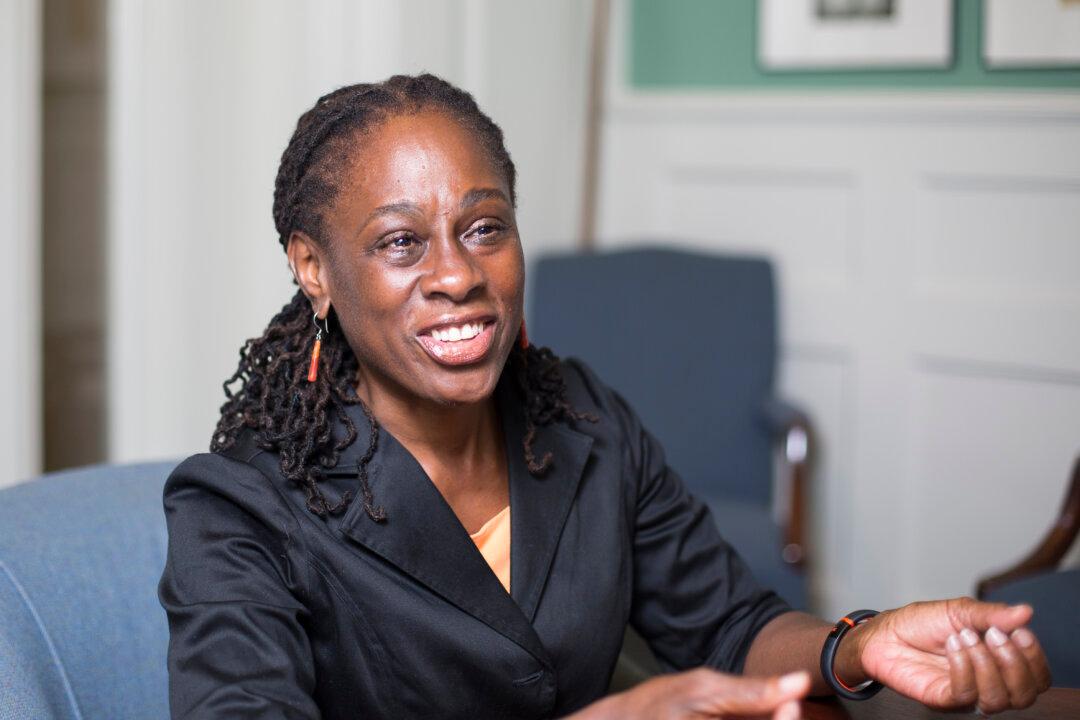NEW YORK—When a distressing life event affects you so deeply and personally, you find yourself at a crossroads. You are confronted with a choice of how to react to it: ignore it, or do everything in your power to affect positive change. New York City’s first lady Chirlane McCray found herself at such a crossroads. She decided to help plan initiatives for improving mental health services in the city. Her overarching vision is nothing short of challenging the Cartesian mind-body split so prevalent in Western medicine.
When McCray discovered that her daughter, Chiara de Blasio, had been diagnosed with anxiety, depression, and substance abuse disorders at 18, she felt everything that any mother would feel.
“It was so painful and so frustrating. … It’s hard to even describe,” McCray said in the light-green Staten Island room of City Hall during an interview on Aug. 11.
At first she was shocked. If you ever see Chiara in action, you can see how warm, charismatic, and intelligent she is—with everything going for her, McCray explained. It was hard to fathom how much Chiara had been suffering or how the symptoms had gone unnoticed for so long.






